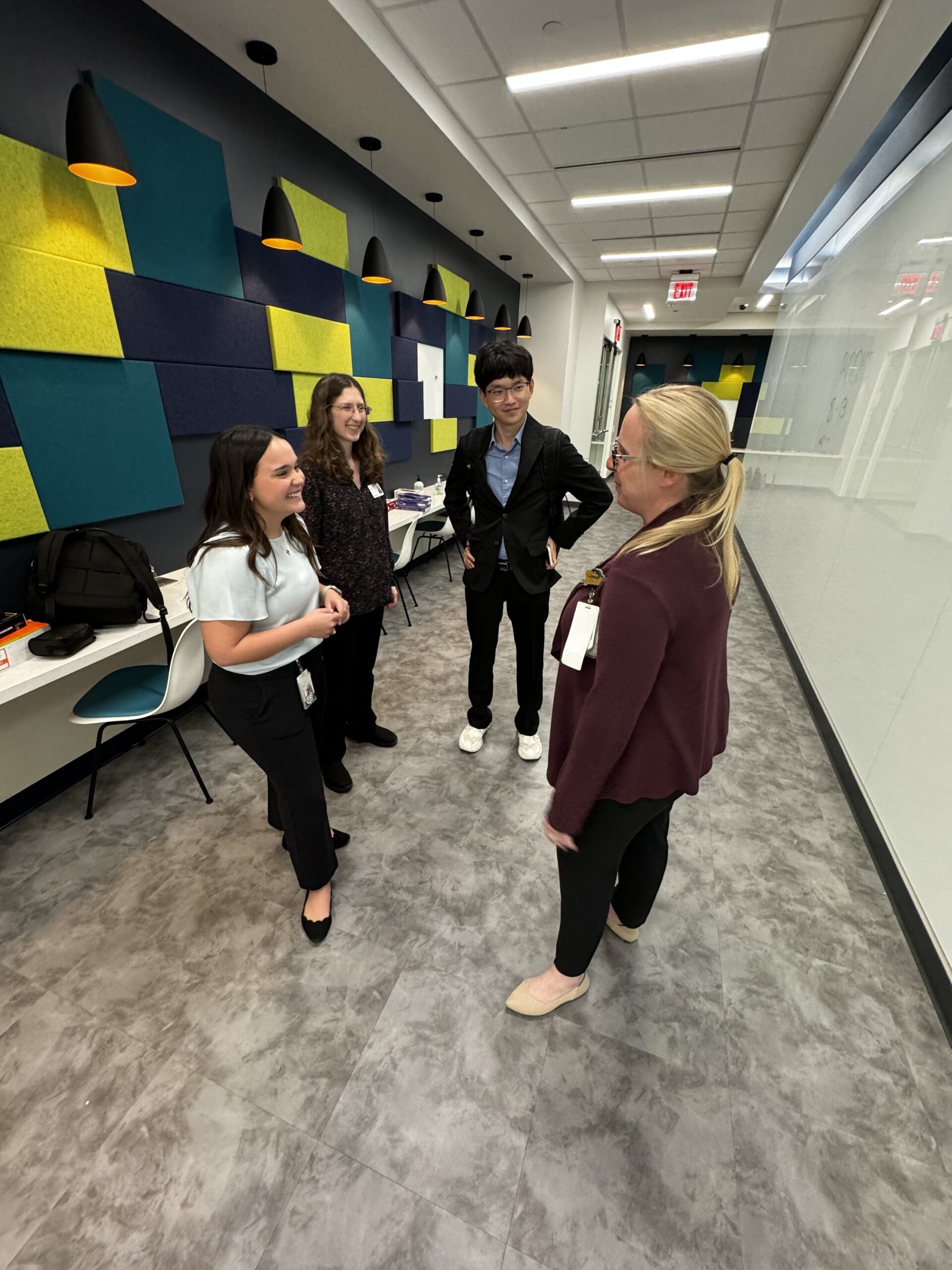Tuesday, July 8, 2025
 Megan Wesling, PharmD, chair and associate professor in the Department of Pharmacotherapy at The University of North Texas Health Science Center at Fort Worth College of Pharmacy, has been selected for the 22nd cohort of the American Association of Colleges of Pharmacy Academic Leadership Fellows Program.
Megan Wesling, PharmD, chair and associate professor in the Department of Pharmacotherapy at The University of North Texas Health Science Center at Fort Worth College of Pharmacy, has been selected for the 22nd cohort of the American Association of Colleges of Pharmacy Academic Leadership Fellows Program.
The highly competitive, yearlong program is designed to develop the nation’s most promising academic pharmacy leaders. It begins in September and concludes in July 2026, with the final session held in conjunction with the AACP Annual Meeting.
As she prepares to begin the program, Wesling reflected on her motivation for applying,
the challenges she hopes to address and her goals for bringing new skills and insights
back to the college.
What motivated you to apply for the AACP Academic Leadership Fellows Program and what do you hope to gain from this experience?
I was motivated to apply to ALFP because it offers a structured and transformative
opportunity to refine leaderships skills and to develop pertinent tools necessary
to further elevate my institutional and professional impact. I hope to gain deeper
insight into academic leadership, academic governance, strengthen my strategic thinking
and broaden my professional network to more effectively contribute to the evolving
landscape of pharmacy education.
How do you envision this fellowship enhancing your leadership approach within the College of Pharmacy?
I envision the fellowship will enhance my ability to lead with clarity, empathy and
vision. I anticipate that the structured leadership development activities, case studies
and peer networking will help me apply evidence-based approaches to leadership. Through
this, I aim to become a more effective advocate for faculty development, curriculum
innovation, and collaboration at the college and institution.
 The ALFP is known for fostering innovation and collaboration, what leadership challenges
in academic pharmacy are you most passionate about addressing through this program?
The ALFP is known for fostering innovation and collaboration, what leadership challenges
in academic pharmacy are you most passionate about addressing through this program?
I am particularly passionate about building sustainable and collaborative academic
environments that serve learners of today. This entails a focus on faculty development,
curriculum design and alignment of educational practice with evolutions of the profession
of pharmacy. I hope to explore strategies for data-driven decision-making, and cross-disciplinary
collaboration to support these passions and foster innovation.
Can you share any initiatives or projects you’re currently leading that align with the goals of the fellowship?
Currently, I am working on the design of a fall retreat for the Department of Pharmacotherapy
focused on fostering a culture of excellence, intentional growth and sustainable faculty
development. This retreat is being developed to engage faculty in reflective and forward-thinking
dialogue around critical areas of academic life—with the aim of cultivating an environment
that supports professional fulfillment, pedagogical excellence and a sense of collective
purpose. This project reflects my ongoing commitment to fostering an inclusive, supportive
and high-performing academic unit while modeling the kind of leadership I hope to
deepen through my participation in the fellowship.
As a member of the 22nd cohort, how do you plan to bring back and implement the insights and skills you acquire to benefit your institution and students?
My intention is to translate the lessons learned from ALFP into tangible leadership practices within the college, which could include refinement in faculty mentorship initiatives, enhancing departmental operations and advancing curricular initiatives that promote student success. I also hope to strengthen our culture of shared leadership and evidence-based teaching, ensuring that our students are equipped not only with clinical expertise but with the adaptability and critical thinking needed in a dynamic healthcare environment.
From HSC Newsroom - Community by Magaly Ayala